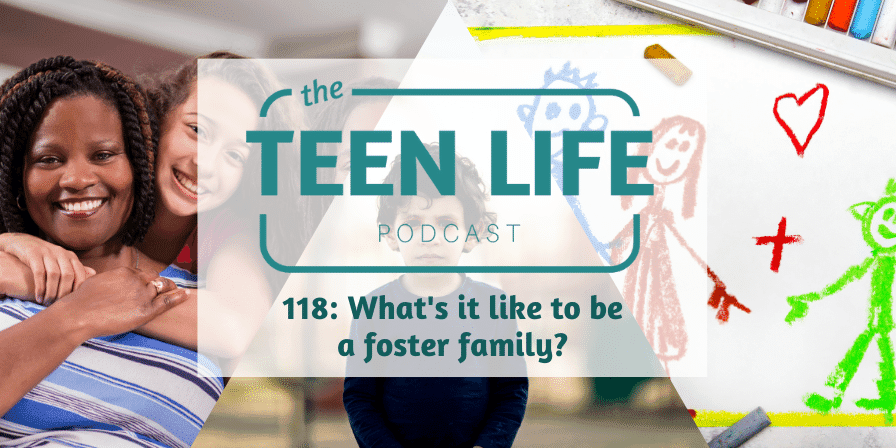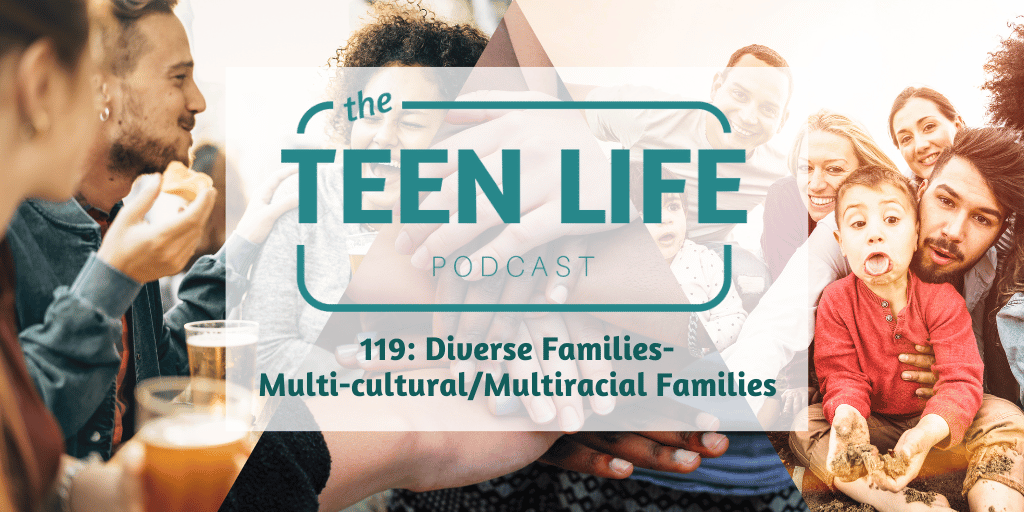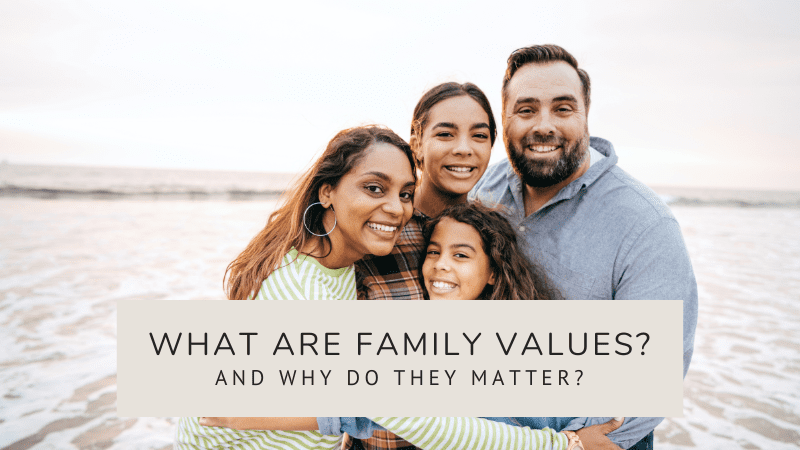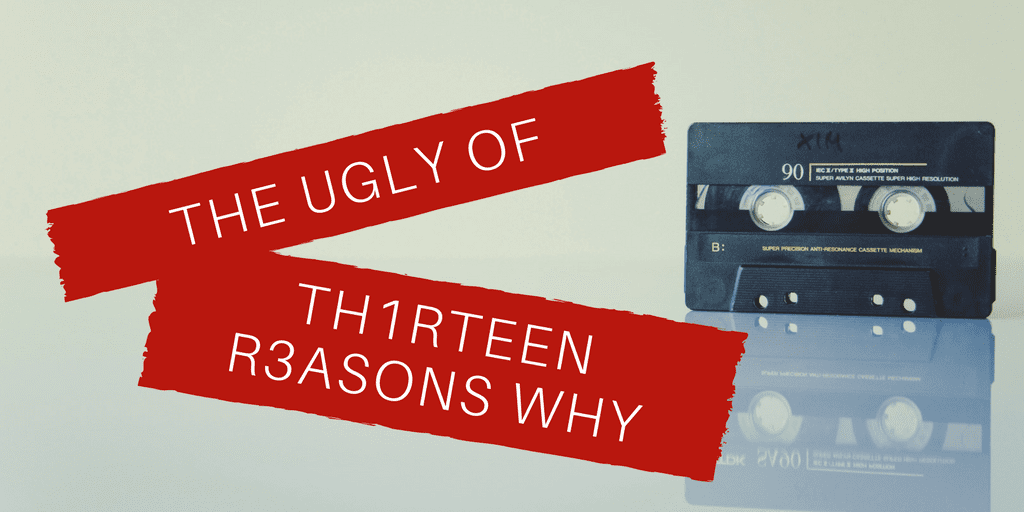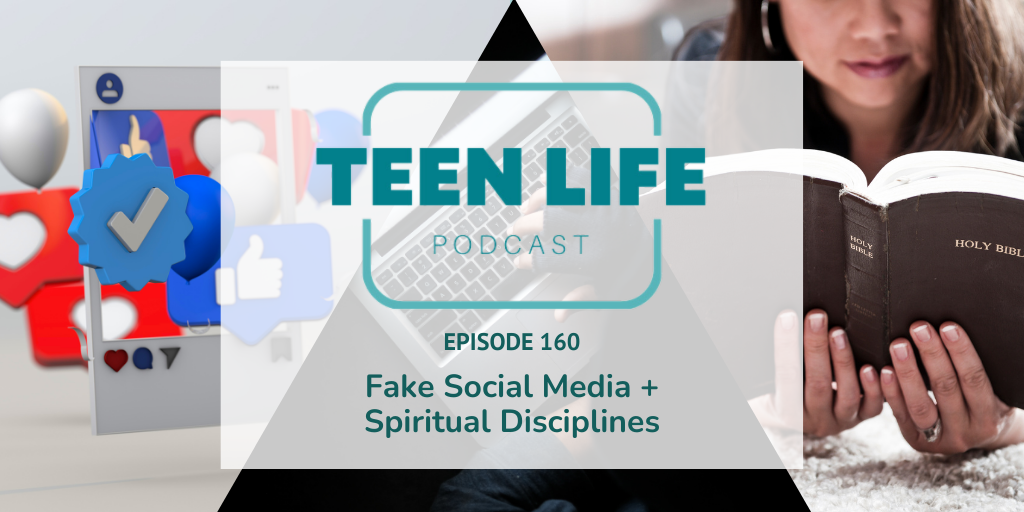
Fake Social Media + Spiritual Disciplines | Ep. 160
Podcast: Play in new window | Download
Everyone’s spiritual journey is unique.
Teens are constantly navigating a world full of changes, challenges, and opportunities. Taking ownership of their faith is a rewarding way to maintain inner peace and find meaning in the chaos.
It isn’t about following a set of rigid rules or mimicking what others do; it’s about finding their unique connection with God and nurturing that relationship in a way that resonates with them.
Keep reading for ideas for exploring various spiritual disciplines and discovering how to best connect with God.
How to help teens pursue spiritual disciplines.
Journaling
Writing down your thoughts, prayers, and reflections can be a powerful way to connect with God. Journaling allows you to express your emotions, document your spiritual growth, and see how God is working in your life over time.
Worship
Whether through music, art, or nature, worship is about expressing your love and reverence for God. Find what form of worship makes you feel closest to Him. This might be singing, playing an instrument, painting, or simply spending time in awe of His creation.
Rest
In our busy world, taking time to rest can be a profound spiritual discipline. Rest is not just about sleep, but about finding moments of peace and stillness where you can reflect and reconnect with God.
Fasting
Fasting doesn’t necessarily mean abstaining from food. It can be any intentional sacrifice of something that distracts you from God, such as social media, television, or other activities. The goal is to refocus your attention and deepen your reliance on Him.
Fellowship
Spending time with other believers can strengthen your faith. Fellowship involves sharing life with others, supporting one another, and growing together in your spiritual journey. It’s a reminder that you are not alone.
Celebration
Celebrate the goodness of God in your life. This can be through small daily thanksgivings or larger gatherings with friends and family. Acknowledging and rejoicing in His blessings fosters a heart of gratitude.
Silence
In the noise of everyday life, finding moments of silence can help you hear God’s voice more clearly. Silence allows you to be still and know that He is God, creating space for deeper communion.
Lament
It’s okay to bring your sorrows and struggles before God. Lamenting is an honest expression of your pain and a way to seek His comfort and healing. It’s a reminder that God is with you in every emotion.
Service
Serving others is a tangible way to live out your faith. It helps you see God’s work in the world and understand His love in action. Service can be anything from helping a neighbor to participating in larger community projects.
Bible Study
Studying the Bible is fundamental to understanding God’s word and His will for your life. It’s not just about reading, but about reflecting on the scriptures and allowing them to transform your heart and mind.
Prayer
Prayer is a direct line of communication with God. It’s about speaking to Him, but also listening. Prayer can take many forms – structured prayers, spontaneous conversations, or meditative silence.
Taking ownership of your faith is about making it your own – finding the ways you connect best with God and nurturing that connection with intention and love. It’s not something you can do for anyone else. You can only encourage them to embrace the journey and get out of the way!
Also in this episode
- Fake social media accounts used to bully people.
- What are satire accounts and how can you identify them?
In this episode, we mentioned or used the following resources about spiritual disciplines and fake social media accounts.
- Facebook: Fake Accounts
- Teen Life Podcast: Social Media Etiquette | Intentional Rest
- The Message Version
- Podcast music by Luke Cabrera & Tobin Hodges
Have a question?
If you have a question about something you heard or just want to give us some feedback, please leave us a comment below. We would love to hear from you!
About Us

Karlie Duke
Communications Director

Tobin Hodges
Program Director

Caleb Hatchett
Podcast Host
Caleb Hatchett | Podcast Co-Host
Caleb loves helping teenagers take ownership of their faith and relationships. He graduated from Abilene Christian University with a degree in Youth and Family Ministry and is currently Student Ministry Director at Jenks Church in Oklahoma.
Tobin Hodges | Program Director
Tobin’s entire career has been centered around students and teens from all walks of life. He has a passion for helping teens be their best selves. As Program Director, he loves working directly with school staff and students through Teen Life Support Groups. Tobin has a Bachelor’s Degree in Music from Texas Tech University.
Karlie Duke | Director of Communications
Karlie has always had a heart for teenagers. Through her role at Teen Life, she loves to showcase the amazing stories coming out of Support Groups, but she is especially passionate about helping adults and teenagers find connection. Karlie has a BS in Communications with a minor in Family Studies from Abilene Christian University.









